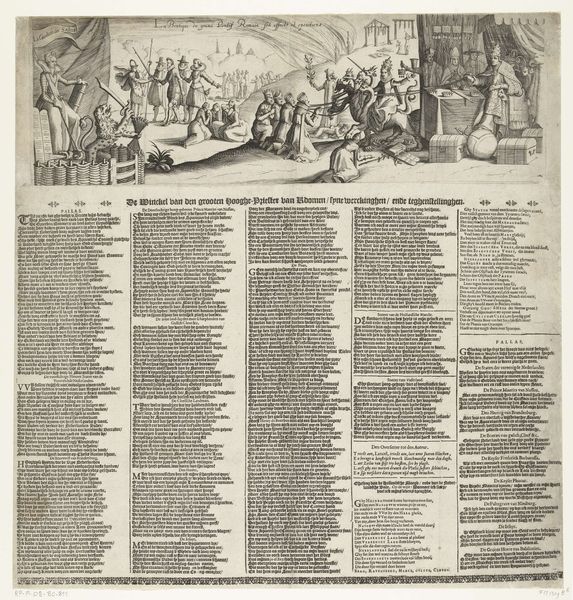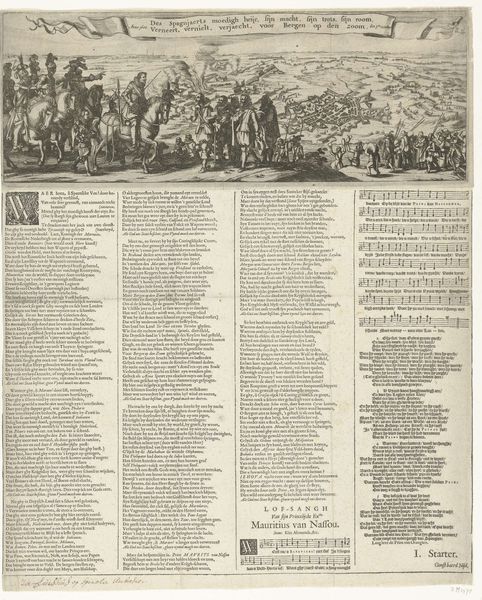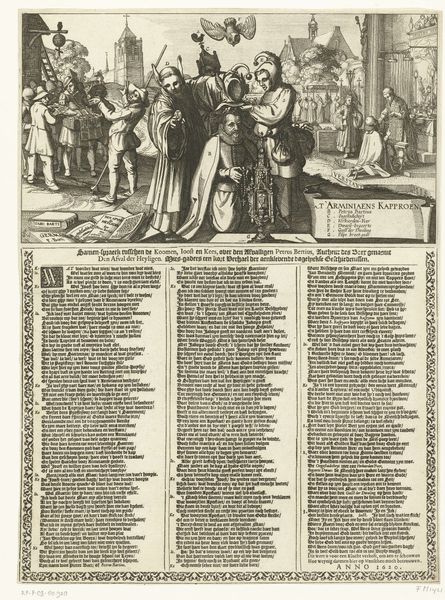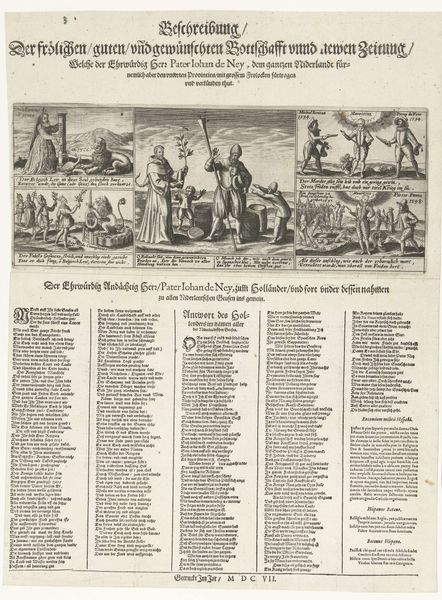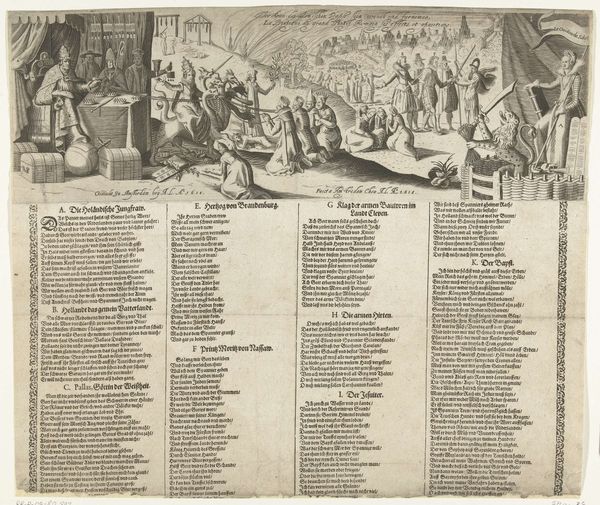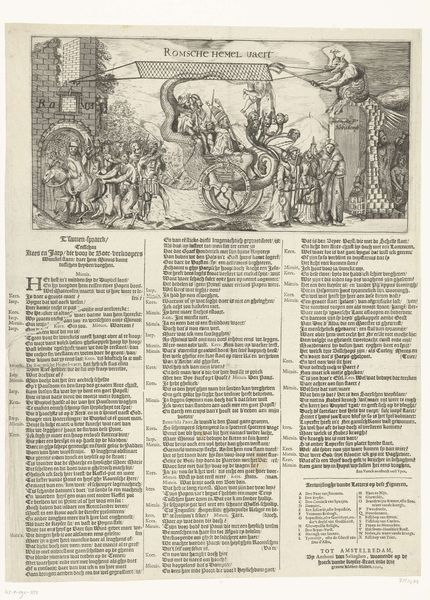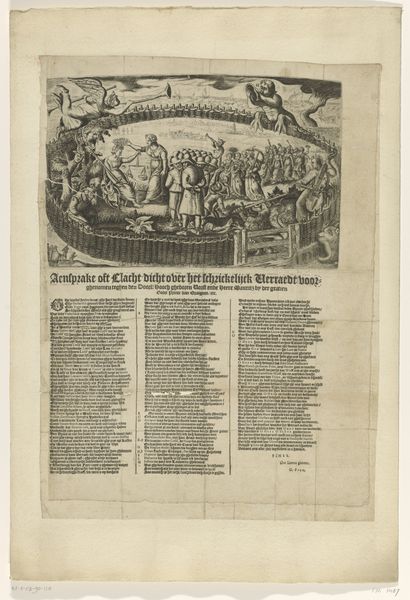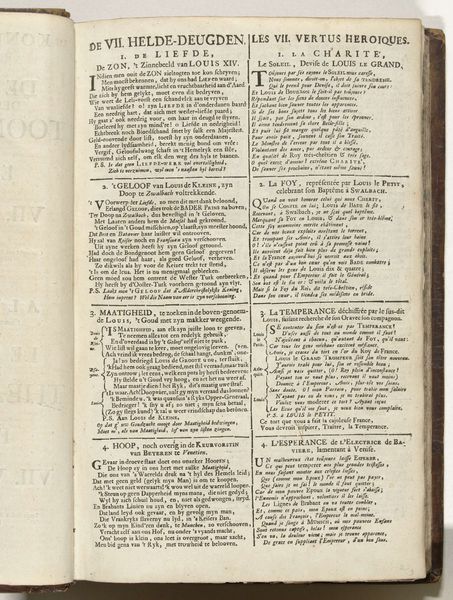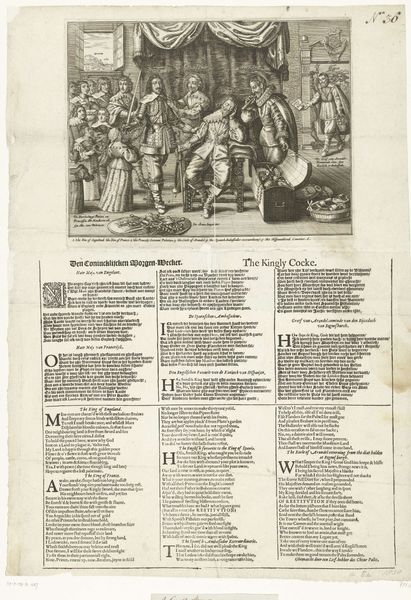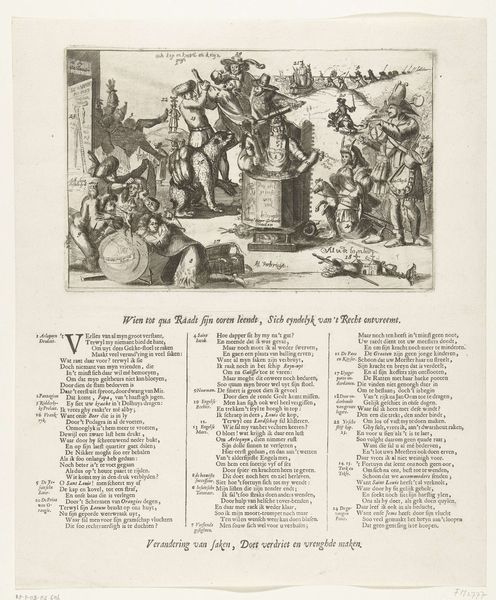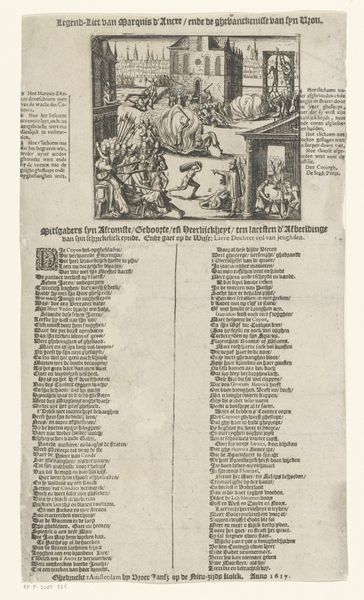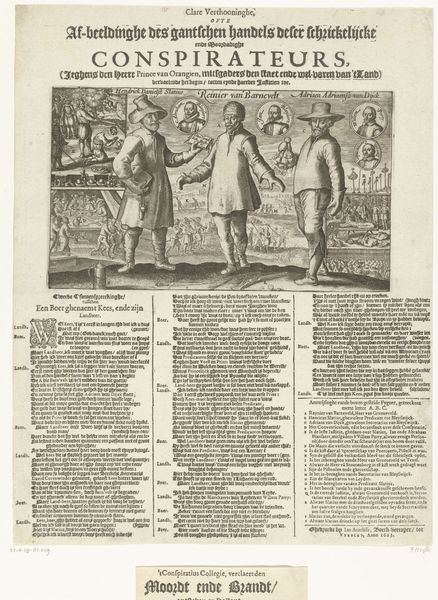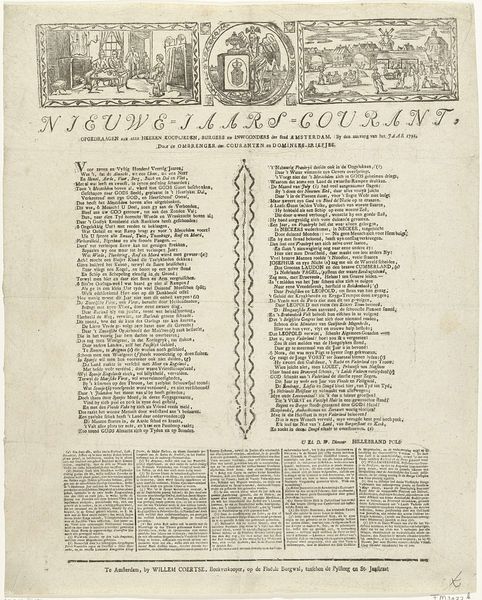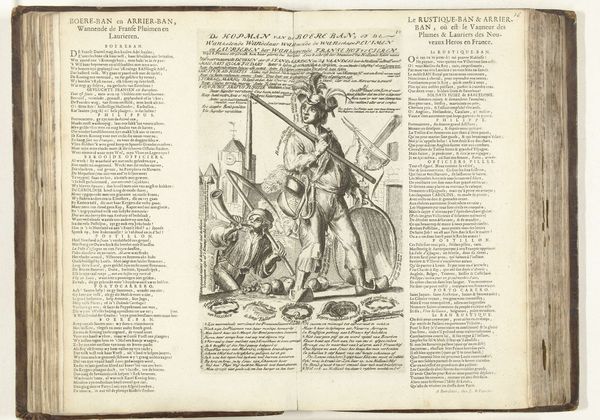
print, engraving
#
dutch-golden-age
# print
#
engraving
Dimensions: height 398 mm, width 286 mm
Copyright: Rijks Museum: Open Domain
This print, "The struggle for the golden stick," was made in 1618 by an anonymous artist, using etching. Etching is an indirect intaglio process. The artist covers a metal plate with a waxy, acid-resistant ground, then scratches an image into it with a needle. The plate is then immersed in acid, which bites into the exposed metal, creating recessed lines. Ink is applied, and the surface is wiped clean, leaving ink only in the etched lines. Finally, the plate is pressed onto paper, transferring the image. Here, the etcher expertly controlled line weight to create detailed imagery, and large blocks of text. The work’s physical qualities and dimensions reflect the economics of printmaking; the relatively small size made it more affordable and accessible to a wider audience. This allowed for the broad dissemination of political commentary during a period of conflict. The choice of etching as a medium underscores the power of accessible images to influence public opinion. It reminds us that the most compelling art often emerges from the intersection of materials, techniques, and pressing social issues.
Comments
No comments
Be the first to comment and join the conversation on the ultimate creative platform.
